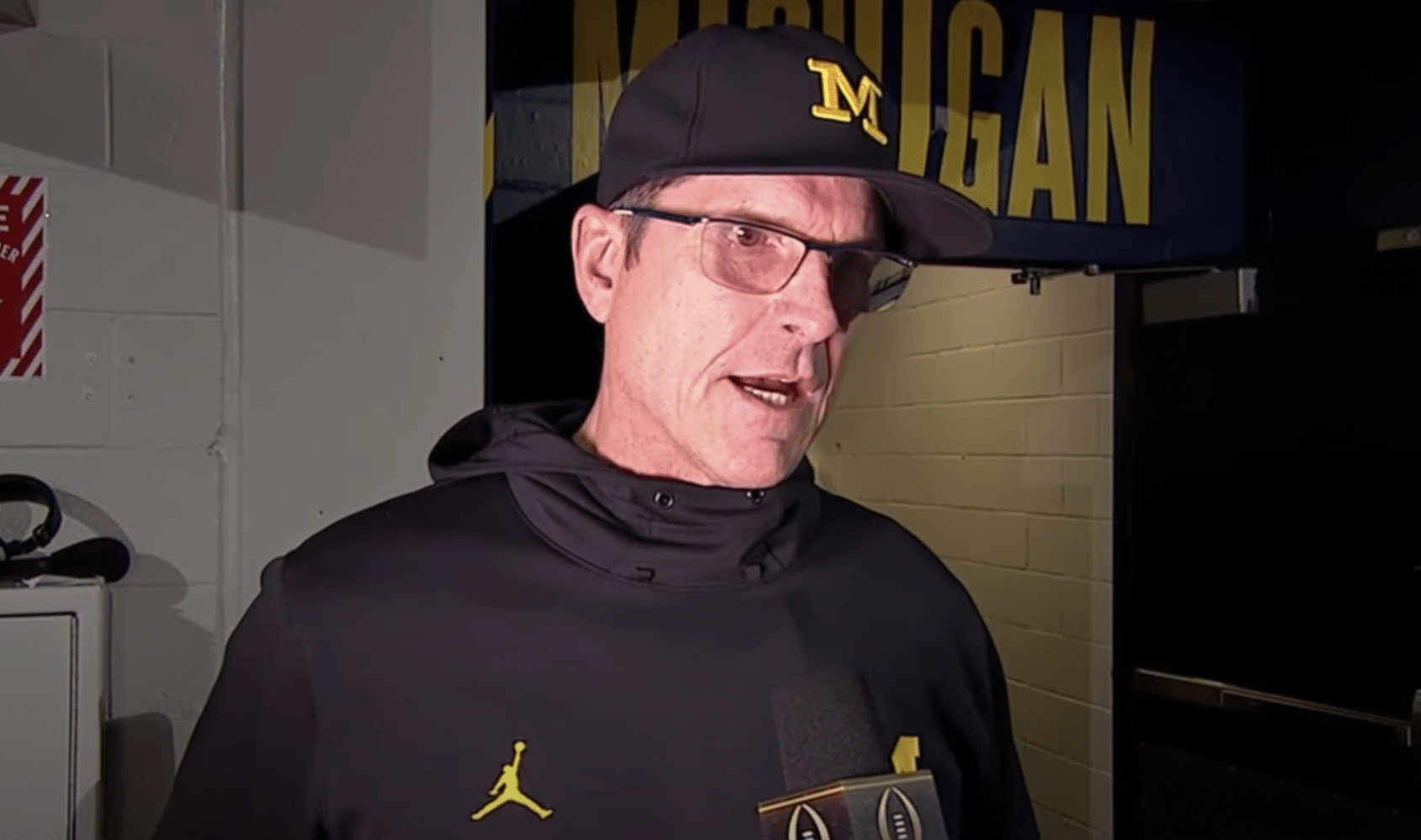Jim Harbaugh reveals why he left Michigan for the NFL
Former Michigan Wolverines head coach Jim Harbaugh recently made headlines with his unexpected transition to the Los Angeles Chargers as their new head coach. This move came shortly after leading Michigan to a historic national championship, leaving many to ponder the reasons behind his departure. Harbaugh’s decision to join the NFL sheds light on his personal aspirations and the unique allure of professional football coaching, particularly the quest for the prestigious Lombardi Trophy.

What Did Jim Harbaugh Say?
In a candid interview prior to Sunday’s AFC Championship Game, Harbaugh expressed his desire to compete for NFL glory, a feat unattainable in the college football sphere.
“There’s no Lombardi Trophy in college football,” Harbaugh said. “I’ve got so many sands left in the hourglass. I want to take a crack at that. There’s nowhere better to do it than with the Los Angeles Chargers.”
This decision reflects a broader narrative within football coaching, where the challenges and prestige of the NFL continue to attract successful college coaches. Harbaugh’s move is a significant marker of this trend, emphasizing the NFL as the ultimate arena for coaching success.
TL;DR (too long didn’t read)
- Jim Harbaugh left Michigan for the Los Angeles Chargers to pursue an NFL championship, emphasizing his goal of winning the Lombardi Trophy.
- Despite recent success with Michigan, Harbaugh felt drawn to the challenges and prestige of the NFL.
- His decision highlights the continuing trend of college coaches transitioning to the NFL, seeking higher levels of professional achievement.

The Bottom Line – Embracing a New Challenge
Jim Harbaugh’s leap to the Los Angeles Chargers represents more than a career change; it’s a pursuit of his professional dream to win the Lombardi Trophy. This transition opens a promising new chapter for the Chargers, under the guidance of an experienced and ambitious coach. As Harbaugh embarks on this new journey, his move will be closely observed, potentially influencing the career trajectories of other successful college coaches eyeing the professional stage.
